Building Welcoming Communities
Just Be a Friend
As many of our families’ children return to school, we wanted to highlight the community members who strove to make their first summer in the U.S. memorable. Alma Gaul became a friendship partner after hearing about the Afghanistan crisis.
A Call to Action
It’s important to highlight the successes of volunteers because they do so much for us and our families.
Alma Gaul has volunteered with our Quad Cities office for about a year or so. She recently took on being a friendship partner with a family of 6 from Afghanistan.
Gaul was a reporter at the Quad City Times in Davenport for 43 years. During her time as a reporter, she often covered topics that connect directly with World Relief, like resettlement initiatives.
She retired over a year ago and has been doing freelance stories of her own interests, or what she finds important.
Last year, she was called to action as she watched the situation in Afghanistan on the news. Gaul wanted to help and asked herself what she could do. Getting hands-on involved had been on her list for a while.
One day, she reached out to Beth Conner, our Community Engagement Manager, and decided it was time to step in.
A Meaningful Friendship
Gaul started off by driving clients to appointments and other places they needed to go. She said it was a great service, but she wanted a connection, wanted to do more.
There was an open opportunity to be a friend to a family. Gaul took it, and in her words, she “went in blind.”
“I don’t know exactly what I bring to this or what they need. But, I’m just trying hard to be a friend,” she said.
She wants to make sure her visits with the family are meaningful and informative. On the Fourth of July, she went over and visited the family. She wanted to talk about the Declaration of Independence. However, she soon realized that was a little too difficult. They had a laugh and just spent the rest of the day together.
Her goal is to show them important things in the community, like John Deere. John Deere is a huge part of Quad Cities history, and she plans to explain the company and take a trip with them to the John Deere Pavilion.
But other than that, she just is grateful to spend time with them. Eat food. Talk about each other’s families. And above all, create a bond. Just as friends do.
Feeling inspired to get involved? Click below to fill out a volunteer application. Or, request a guest speaker at an upcoming event.
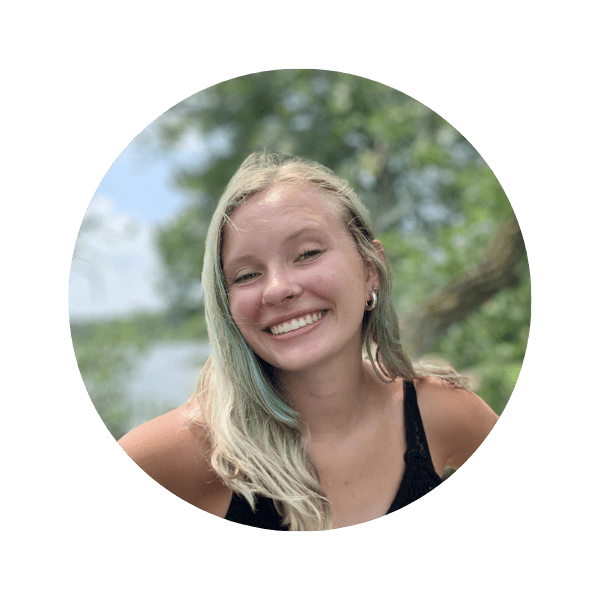
Sloane McIlrath interns with the APA and Communications team at World Relief. She is a senior at Augustana College majoring in Creative Writing and Multimedia Journalism Mass Communication. She wants to share people’s stories and bring more awareness through her writing.
Part of the Journey: Interning at WRQC
Many local college graduates get their start by interning at World Relief Quad Cities. Sloane is excited to follow in the footsteps of Augie alumni and make a difference in her community.
Why I Chose World Relief Quad Cities
When looking for internship opportunities, I wanted to find something that would be challenging and rewarding. World Relief Quad Cities fits both of those requirements.
I am interning in the Afghan Placement and Assistance Program (APA) and Communications teams at World Relief QC. I am going to be a senior at Augustana College majoring in Multimedia Journalism Mass Communication and Creative Writing.
Like a lot of people my age, I’m still very unsure of what I want to do after next year. I wanted to find an internship that could offer new experiences and new skills I may have not encountered before. A lot of people from Augustana College intern or even work at WRQC! I had to join the team because everyone had such great experiences.
Since I am interning for two departments, I will be doing a lot of things! The main ones I can think of are working with individuals, paperwork, home visits, interviews with families and clients, and probably a lot more! I’m excited to get started and to start really helping out the individuals that come to the United States.
Building Bonds that Last
In APA, I have already gotten to go on a few home visits. While we are there, we make sure they are comfortable in their home and if they have any questions (like how to use the stove, for example).
It’s really cool to meet and talk with the families in person and build a bond with them. Paperwork is a big part of APA but getting to see these people in person instead of on paper is amazing.
I am excited to be a part of the journey for them and making sure they are comfortable and on a path to success, whether that means self-sufficiency, getting a job, or just getting settled! Helping people is one of my passions and I think this is just a great opportunity I am grateful to have. My goal is to make everyone feel welcome and spread awareness for World Relief Quad Cities and the amazing things this group has to offer.
Interning with World Relief Quad Cities is an impactful way to gain real-world experience and prep for your career. Just fill out a form and attach your resume to apply.

Sloane McIlrath interns with the APA and Communications team at World Relief. She is a senior at Augustana College majoring in Creative Writing and Multimedia Journalism Mass Communication. She wants to share people’s stories and bring more awareness through her writing.
A Look Into Casework: Marci Arreguin
Many local college graduates get their start by interning at World Relief Quad Cities. After her internship, Marci stayed on the team to become a caseworker.
Intern to Caseworker
Marci Arreguin is a caseworker at World Relief in the Quad Cities. Just recently, she graduated from Augustana College and majored in Public Health and minored in Women and Gender Studies. Just like me, Marci started as an intern here.
While at school, someone from World Relief came to speak to one of her classes.
“Right after that, I knew that is what I wanted to do,” Arreguin said.
Arreguin was ecstatic when she was chosen to intern for WRQC. She started interning in August 2021 for the first semester of school for her Public Health major. She included World Relief in her senior year project and came up with ideas on how to help out welcoming processes for the families at the airports.
After the internship ended, she started working part time. Now, she’s a caseworker.
What a Caseworker Does
There is a whole process for new arrivals of families and individuals. Each one works with a caseworker just like Marci.
I asked her to explain the process and tasks of being a caseworker.
“It all starts from the airport arrival,” she says.
Before a family arrives, there are people working behind the scenes to set up their homes so they can move in right away. Sometimes, if the home is not ready yet, the family stays in a hotel for a short period of time.
Moving into a new home in a new country is an unsettling experience. Arreguin described how she helps: “We ask them if there is anything they need or if they have any questions when they get settled in. But, basically, we make sure they feel welcome in their new home.”
The day after arrival is very important for a caseworker and the families. It’s a day where the caseworker really gets to introduce themselves and create a bond with the families. However, there’s a lot of paperwork involved. The caseworkers set up the families with WRQC’s core services, like English classes.
Arreguin explained some other tasks. She takes them to their appointments, makes sure they have food, or makes sure they have things they need like WiFi or a phone. One key task is “just being there for them.”
“We are the people that they can rely on because some people come and know no one. Just making sure that they know that you are there for them. That’s my favorite part of the job,” she said.
The Goal
Like all things, there is always a goal you are striving for. There is an outcome you hope for.
The goal of casework, Arreguin said, is “to make sure that you can prepare them well enough so that when they are out of the program, or when they can, they will be able to go out into the world and live in the U.S. This is how I think about it: if they don’t know how to do something, we have to be the ones to help them, teach them, and to be there to mentor them.”
Caseworkers are there to make sure they are comfortable and set up on a path to self-sufficiency and settlement. Just like Arreguin said, they are the mentors.
From her experience this far in casework, she has observed something crucial. Because the families put so much trust into their caseworkers, “you have to be someone that they can trust.”
Her favorite part of casework is helping clients, and most importantly seeing them grow. Eventually, they settle in, become independent, and do things on their own.
Caseworkers help every step of the way while the families adjust to the U.S. After the family’s program is finished, caseworkers get to see and hear about the amazing accomplishments these families have achieved, all thanks to them and WRQC.
Interning with World Relief Quad Cities is an impactful way to gain real-world experience and prep for your career. Just fill out a form and attach your resume to apply.

Sloane McIlrath interns with the APA and Communications team at World Relief. She is a senior at Augustana College majoring in Creative Writing and Multimedia Journalism Mass Communication. She wants to share people’s stories and bring more awareness through her writing.
Why We Welcome: Faith-Based Refugee Resettlement
During the month of June, World Relief Quad Cities hosted Dr. Emily Frazier as part of her ongoing research on faith-based refugee resettlement in the U.S. Dr. Frazier is investigating the work of faith-based groups in order to understand how and why local communities welcome new Americans.
Faith-Based Organizations and Refugee Resettlement in the U.S.
Historically, the U.S. has resettled more refugees than any other country in the world through the UNs’s third-country resettlement system. However, over the past few years, the U.S. program has faced a series of challenges. Funding cuts and shifting arrival numbers have altered local resettlement agencies’ capacity to welcome the most vulnerable to American communities.
Coupled with the ongoing effects of the COVID-19 pandemic, resettlement agencies across the country depend more than ever on the assistance of volunteers, local congregations, and community networks to continue their valuable work responding to the needs of the displaced.
The national network of resettlement agencies like World Relief receives, places, and welcomes displaced families to communities nationwide. In the Quad Cities and across the country, WR works with community partners to empower the church to serve the most vulnerable.
World Relief is not alone in their mission. Research indicates that over 70% of all resettlement work in the U.S. is faith-based, including Jewish, Muslim, and Christian organizations. However, not all religious Americans are supportive of refugee resettlement. Recent research reveals evangelical Protestant Christians as the least likely among Americans to support welcoming refugees to the U.S.
Some evangelical leaders, churches, and organizations such as World Relief have engaged in advocacy on behalf of immigrants and refugees. Still, research suggests a gap between the public positions of evangelical leaders and the laypeople in their pews. The gap is especially noticeable when it comes to welcoming refugees to local communities.
Welcoming the Stranger in the Quad Cities
Despite coordination at the national level, the local reality of resettlement varies significantly from place to place across the country.
There may be less national support for refugees among certain Christian groups, but the local picture is different – in places such as the Quad Cities, community groups from both secular and faith-based traditions have partnered with World Relief to expand the organization’s capacity and welcome refugees.
Frazier’s current project seeks to understand the motivations and implications of this support and partnership, especially with local faith groups and faith-motivated volunteers.
As of July 2022, Frazier’s project has included several months of in-depth interviews, observations, and contextual research. In coming months, she will continue to recruit participants for research interviews, and plans to implement a wide-reaching survey of community partners, volunteers, staff of World Relief, and other affiliated individuals in order to understand broader faith-based trends in support for refugee resettlement in the Quad Cities.
Your Input Matters
Dr. Frazier would like to publicly thank all those who have given their time and expertise as a part of this project thus far – this research would not be possible without the support of participants like you!
If you would like to learn more about or in participate in this research through a survey, short interview conversation, or other medium, please contact Dr. Frazier at eblackard@gmail.com or connect with her via Twitter @efrazier_geog.
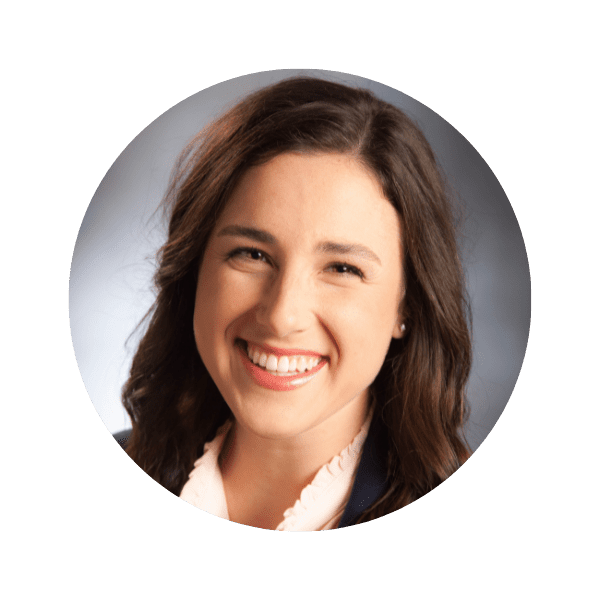
Emily Blackard Frazier, PhD, is a researcher and assistant professor of geography at Missouri State University. Her research interests include forced migration and refugee resettlement, faith-based organizations, and welcoming communities. She has lived and taught in communities across Tennessee, Missouri, and Arkansas.
Building a Community of Safety and Belonging
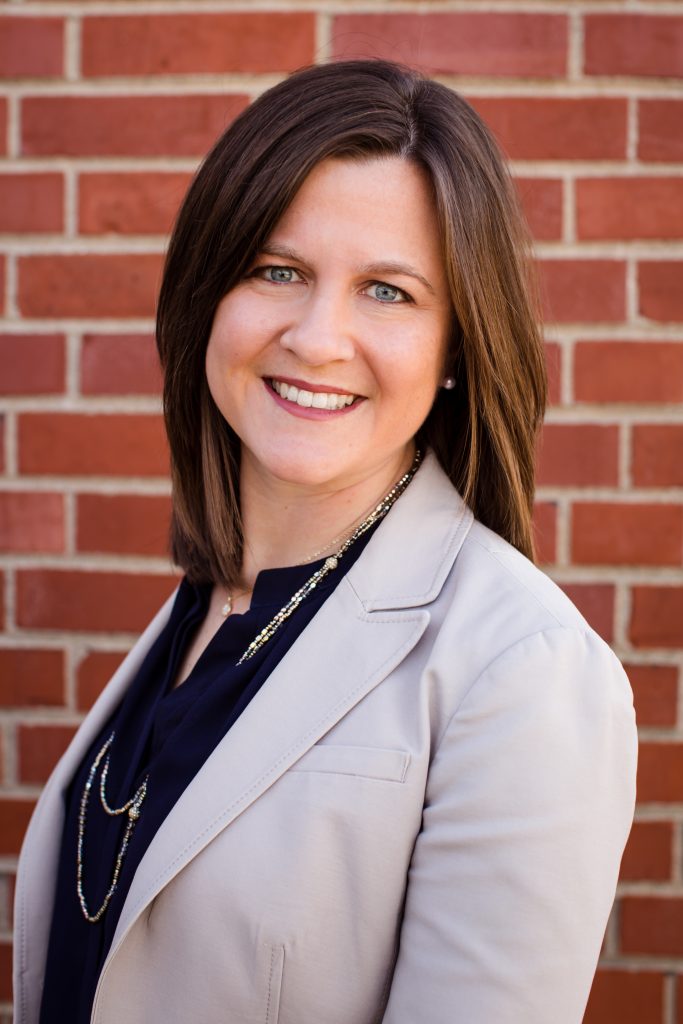
A reflection from World Relief Chicagoland Executive Director Susan Sperry.
June is World Refugee Awareness Month. And on June 20th, we celebrate World Refugee Day. This year, the theme of World Refugee Day is focused on the human right to seek safety.
Whoever they are, people forced to flee should be treated with dignity. Anyone can seek protection, regardless of who they are or what they believe. It is non-negotiable: seeking safety is a human right.
Wherever they come from, people forced to flee should be welcomed. Refugees come from all over the globe. To get out of harm’s way, they might take a plane, a boat, or travel on foot. What remains universal is the right to seek safety.
Whenever people are forced to flee, they have a right to be protected. Whatever the threat – war, violence, persecution – everyone deserves protection. Everyone has a right to be safe.
UNHCR
Who are the people seeking safety?
This is a time of visible conflicts. You might think of Ukraine. There are millions of others who have fled their homes due to less-publicized conflict in places like Ethiopia, Myanmar, or South Sudan. Many of these people become refugees. And during Refugee Awareness Month, it is important that we tell their stories of leaving home to seek refuge.
And yet there are others too – people who arrive in the United States seeking protection from violence because of their identity, religion, or views.
June is National Immigrant Heritage Month, so we also have the time to consider our immigrant neighbors who left beloved homelands, friends, and family…to seek safety and a place to live freely.
This month, I am reflecting on the key reason why both refugees and immigrants must have the right to seek safety: each one is a human being. Those of us who follow Jesus believe in the concept of the “Imago Dei”: that each person is made in the “Image of God.” Let’s explore a few reasons why that makes such an impact on how we treat our immigrant and refugee neighbors.
1. Remembering the Imago Dei Transforms Our Relationships from 2D to 3D
I recently had a conversation with a pastor about what it means to cultivate deep relationships. This pastor framed the conversation as taking a relationship from two dimensions (2D) to three dimensions (3D). By necessity, all of us have “2D” relationships. There are people we know of and we know about, but we don’t know in-depth. We know their outer image, but it’s more of a caricature. We may not think of them as a complex individual with the same level of joy, pain, and experience that we have.
A person becomes “3D” when we spend time together. By talking, laughing, eating, and being human together, we gain insight into their joys, pains, dreams, and fears. When we share life together, we become better able to see the image of God in the person before us and also recognize it within ourselves.
That’s also how we begin to understand each other’s potential. We recognize their capacity to love, create, and build relationships — and that those are qualities we share by virtue of being humans, created in the image of God.
Relationships that move from 2D to 3D begin the process of building community. And in community, where we recognize each other’s humanity, potential, and limitations, we can create safety and space for each other to thrive.
2. Developing Relationships and Belonging Requires Time
In more than 20 years with World Relief, I have seen thousands of people resettled and thousands more immigrants become a part of the World Relief community in Chicagoland. And I have experienced the many ways that being together in community is rewarding and transformative for all involved. In my friendships with immigrants and refugees like Deborah, Jerome, Mohammad, Durmomo, and many others, I have gained an appreciation for the way that the image of God manifests in the creativity, wisdom, and compassion of those around me. Keep an eye out for an upcoming blog series from my friend Durmomo about this!
In each of these friendships, investing time with each other has transformed a 2D image in my head into a 3D understanding in my heart. I am deeply grateful for how these relationships and how we continue to shape each other.
3. Our Value as Humans Gives us the Right to Seek Safety
Christianity, and many other faiths, emphasize the fact that human life is precious. This common thread across cultures is backed up in the theological belief of Christians, that humans created by God and loved by Him, are valuable and important. When someone’s life is threatened, they should have the right to seek safety so that they can experience peace, a relationship with God and others, and the opportunity to use their God-given talents and passions. As Christians, we can protect that opportunity by creating a welcoming space.
I believe that together, we can form a movement to serve the vulnerable people among us. That includes extending safety to refugees and immigrants who have fled war, violence, and persecution and allows us to see the value in every human life. We welcome them. Whoever they are, wherever they come from, and whenever they arrive.
Continue reading:
Ali’s Story: A Refugee Pharmacist Using His Career to Give Back to Others
Finally, I’m Home: Raphael’s Story of 8 Years Waiting for Resettlement
Ali’s Story: A Refugee Pharmacist Using His Career to Give Back to Others
In 2010, a man named Ali AlQaisi arrived to the U.S. as a refugee from Iraq. At home in Baghdad, he had worked as a pharmacist. But when he and his family arrived to the United States, he faced the challenge of starting over entirely. He had to rebuild his life. He had to restart his career.
But the journey to gaining his credentials and returning to the health sector would not be an easy one.
The challenges could be easy to overlook In 2022, Ali is a clinical specialist with CVS Health and is board certified in geriatric pharmacy. By any standard, his is a story of massive success. He even won a 2021 Paragon Award, a recognition from Omicron of CVS Health that is “granted to an exceptional employee who best embodies the company’s values, is a model of excellence, and lives its purpose every day.”
But Ali is not just excelling in his career. Part of his mission is to help others in his community…so that all can succeed! One way he does that is by tutoring immigrant medical professionals preparing for pharmacy exams. Each person must pass the exam to practice in the United States, but this can be challenging to manage in a new language while working to support a family and navigating a new cultural environment. Ali walks with other immigrants as they study, and he helps connect them with internship and job opportunities so that they can grow in their careers.
“I know what an overwhelming experience it is to start over in a new country. If I can help ease the transition of one refugee, it is worth it.”
Ali AlQaisi, a refugee from Iraq
Hear Ali share more of his story below.
Fleeing Violence in Search of Hope
My family and I left our hometown in 2006 due to sectarian violence. This violence hits very close because I lost my dad to it. We left the country and went to Lebanon where we registered as a refugee with the United Nations. We waited there for four years and in 2010, we came to the United States.
I arrived here with my wife, my seven-month-old son, my mom, and my younger brother.
I can recall that day as the happiest day in our lives. It was also a day full of uncertainty and fear. As like with many other refugees, our main struggle was the language barrier, cultural gap, and adapting to the new system in the United States. When I say the new system, I mean every single detail in our daily life is a struggle for the immigrant and the new arrival.
When I came here, I was 30 years old, and I did not know how to get groceries or baby formula for my son.
I felt incapable of taking care of myself and my family. I look back and have no idea how we could have made it without the help and support we received from World Relief. World Relief was there from the first day as they waited for us at the airport. They provided us with everything we needed to settle down and they guided us step by step.
They provided ESL classes, helped us find jobs, they connected us with a community of well-established families and volunteers, and helped us adapt to the system.
A Career Pathway Back to Pharmacy
Our first year here, I worked in a factory. I was so happy and grateful to provide for my family while I was navigating a very complicated healthcare system in order to transfer my license as a pharmacist. Back then I did not know any foreign pharmacists who had gone through the same process, and this made it very challenging. I did not know how to start. I did not know when to start.
In June 2011, we had our second baby. At that time, I was preparing to take my first exam and I was so terrified and scared to fail that exam because the exam cost $800. I could not afford to lose $800 if I failed the exam, but my wife encouraged and supported me to take it. I took the exam and passed it. We were so determined to succeed. We did all that we could.
The first couple of years in the United States, we did not have a social life. We would work, study, and prepare to take exams. I worked seven days a week and studied for the exam. My wife took care of the kids and worked a part-time job while she was preparing to take exams.
In the beginning of 2014, I became a registered pharmacist in the state of Illinois. Today, I am a licensed pharmacist in 11 states and a board-certified specialist in geriatric pharmacy. My wife is a hospital pharmacy manager. We are blessed with three kids.
Giving Back as a Pharmacist
Since the first day our struggle ended, we made a commitment to support new arrivals and refugees on their journey.
My story is a great example of when you are helping an individual, you are not just helping one person, but you are helping the community. It has an exponential impact.
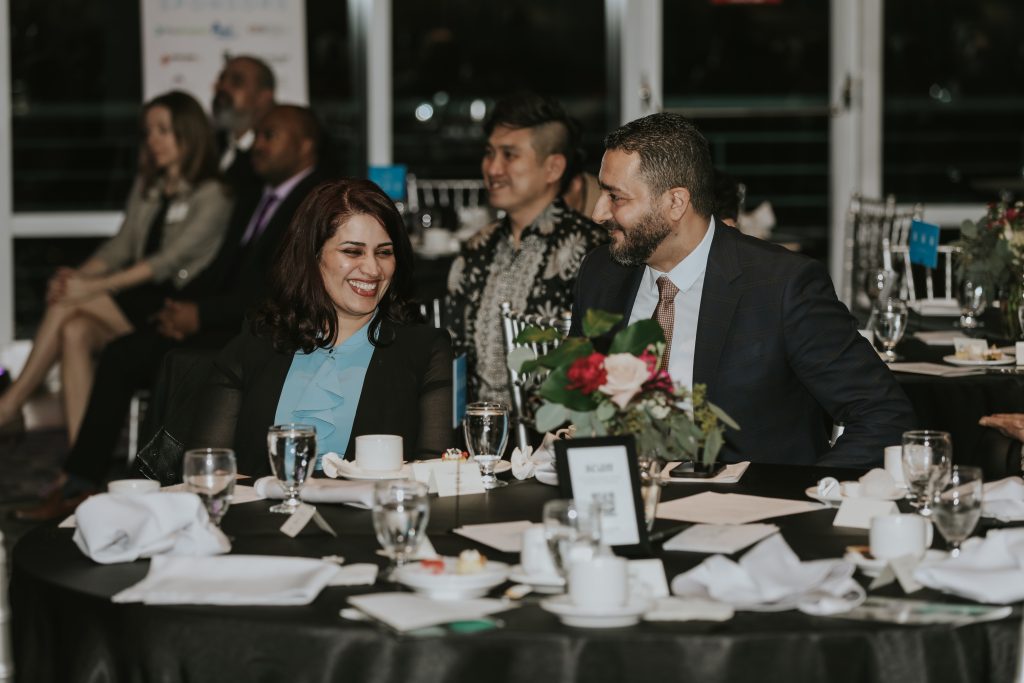
Leading From Where You Are
Ali demonstrates what it means to lead from where you are. He is actively engaged in the Chicagoland community using his professional expertise to help newly arriving refugees navigate the American health system, ensure they attend medical appointments, and reduce language and cultural barriers to support adherence to their treatment plan. And by supporting others in their careers, he is helping build a stronger community.
He is creating lasting change.
Continue reading:
5 Ways You Can Lead in Your Community
Partner Spotlight: Greg & Olivia Evans on “Who is my neighbor?”
5 Ways You Can Lead in Your Community
Creating communities of love and welcome requires all of us. We believe that we each have a part to play and as Susan Sperry reflects in last week’s blog, we all can lead from where we are. For many of us, leading from where we are can feel intimidating and sometimes, we get stuck. If you’re like me, seeing a few examples can inspire you to take the next step. Here are 5 simple ways that you can lead in your community.
Advocate for Refugees and Other Immigrants
From where you are, you can lead through advocacy efforts with World Relief. From pushing for pathways to citizenship for Afghans and Ukrainians to resourcing resettlement efforts as a whole, your voice can create change. In addition to signing on, you can share these efforts with friends, family, or on your social media accounts.
Gather People to Gather Items
Inviting a group of people you know to collect items that help support a newly arrived family is a simple and effective way to lead from where you are. Maybe this is a small group from church, a team from work, or families in your neighborhood. You can find lists of needed items on our website and gather people and items at the same time!
Lead a Volunteer Team
Bringing people together to form a Good Neighbor Team or a HOME team is another way to lead. Take a few minutes to look at the circles you are in. Do you know other people interested in supporting a newly arrived family? Send them a text or make a phone call to see if they want to journey with you to extend welcome. Learn more about serving as a team on our volunteer page.
Lead a Book Club
Recommend a book to your book club around refugee and immigrant issues. Not in a book club? Consider starting one! Here are a few recommendations AND a brand-new book that is being released this month
- Welcoming the Stranger by Matthew Soerens & Jenny Yang
- Seeking Refuge by Stephen Bauman, Matthew Soerens, & Dr. Issam Smeir
- Inalienable by Eric Costanzo, Daniel Yang, & Matthew Soerens
If you are in Chicagoland, join us in person for the official book launch event with the authors on May 31st at 7:00pm.
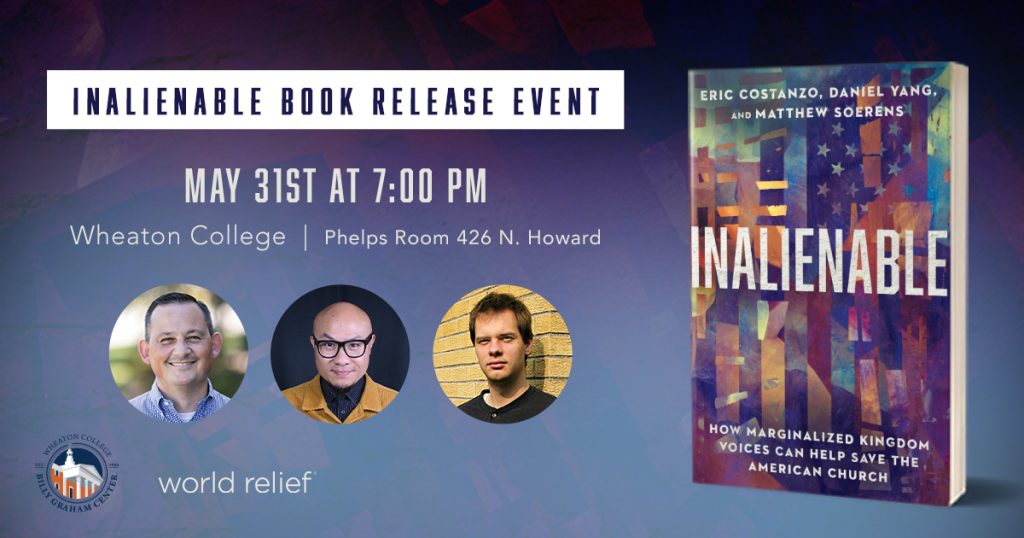
Start a Facebook Fundraiser
Facebook fundraisers are quick and easy to set up. They are a simple way to share with others that you care about supporting immigrants and refugees. And you can invite others to join you in providing the services offered through World Relief. Follow the steps at the link above and select World Relief – to make sure the donation is supporting the work in Chicagoland, email Nathan White to ensure the correct designation.
There are so many opportunities for each of us to lead where we are. Hopefully, this short list spurs in your imagination many other ways to lead. Together, we can lead from where we are to create lasting change.
Stories of leading:
Partner Spotlight: Greg & Olivia Evans on “Who is my neighbor?” (worldrelief.org)
A Model for Corporate Partnership: GForce Life Sciences – World Relief
The Volunteer and Refugee Friendship Helping Both Friends Succeed (worldrelief.org)
A Reflection During Volunteer Appreciation Month
By Rachel Wassink, Volunteer Mobilization Manager at World Relief Chicagoland.
Along with the coming of spring and the celebration of Easter, April is when World Relief celebrates National Volunteer Appreciation week. A week when we recognize the profound impact of volunteers and the lasting change they bring to our communities.
Volunteers have walked alongside refugees and other immigrants through changes and challenges, but they have not lost hope. They know that creating change that lasts isn’t easy, but it’s possible when we move together.
What I’ve Seen
Over the past four years, I have had the joy of working with volunteers serving across Chicagoland in a variety of opportunities like Friendship Partners, Youth Tutors, Transportation Assistants, and more. I have seen volunteers give their time, resources, creativity, and expertise. All while maintaining a posture of humility and curiosity as they learn from our neighbors.
Amidst changes like COVID-19 and the surge of Afghan arrivals this past fall, volunteers have shown unwavering support. Their steadfast presence has been a constant encouragement to me as we move forward together.
One Volunteer’s Impact
There are unending stories I could share of how volunteers have made a lasting change. But there’s one that’s been at the front of my mind lately as I see buds on the trees bursting and daffodils sprouting up through the ground.
A family arrived in the spring of 2020 at the beginning of the pandemic. Soon they were matched virtually with a Friendship Partner volunteer. The family mentioned that one of their goals was to start a garden so they could have fresh food and be reminded of their garden back home. Over video calls and through a language difference, their Friendship Partner helped them make a list of supplies and create a plan for where to set up the garden. Their Friendship Partner collected some garden supplies from their church community and was able to drop off the supplies. Within a few days, they watched the family plant their garden virtually.
Fast forward to spring of 2021, and this Friendship Partner got to join the family outside to plant their garden once again! That simple act of service in supporting the family with their first garden bloomed into a joyful tradition.
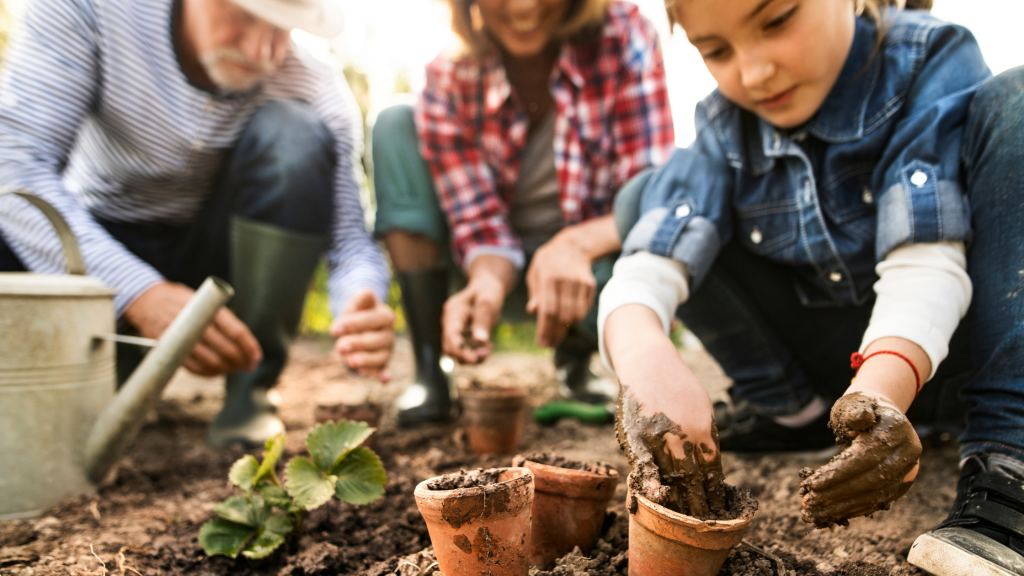
You can make a difference
Volunteers walk alongside refugee and immigrant neighbors in dozens of small and big ways. Creating change that lasts, and we are so thankful for each and every volunteer. From gardening to navigating new systems to sharing a cup of tea, volunteers show up and make a difference.
To our volunteers that have been along for the journey – thank you for your generous service. And to those not yet on the team – you too can be part of this community of volunteers moving forward together in welcoming our neighbors and making change that lasts.
Read more about the impact of volunteers and how ordinary moments create a movement of change in our Year In Review: 2021 Year in Review | World Relief Chicagoland Annual Report
Partner Spotlight: Greg & Olivia Evans on “Who is my neighbor?”
When their children were school-age and began attending the neighborhood school right around the corner, Greg and Olivia Evans quickly realized something. The students their children were sitting next to in class did not look like them. From a distance, they watched school counselors and teachers meeting the needs of recently resettled refugees. They saw these students learning a new language and navigating a huge life change.
Connecting with World Relief Chicagoland
As they saw this, Olivia (and Greg) began wondering: “How can we be a part of this? Is there a way for us to give kids equal footing in the same way we want to provide for our own kids? Is there a way for us to help make a difference? And that’s where we met World Relief.”
From this point forward, the Evans’ partnership with World Relief has only expanded. They’ve brought multiple neighbors onto the journey with them. They had friends saying – “I can drive a car.” or “I can be of service.” In fact, their neighbor around the corner is still involved. He will say, “I’m doing an airport run tonight.”
For the Evans, it all comes back to the concept of loving your neighbor. Loving your neighbor can be grand or simple, and there is room for all of that in World Relief’s work. It’s just a matter of asking yourself, what will I do?
Answering “Who is my neighbor?”
One of the ways Greg and Olivia are responding is through financial partnership. Each year, they take time to talk with their kids. They talk about where they can have a tangible financial impact and what feels important to them. For the last several years, World Relief has been at the forefront of what is important.
Ultimately, for Greg (and Olivia) it comes back to the question: “Who is my neighbor? Everyone is my neighbor. How do I show love? In any way I can.”
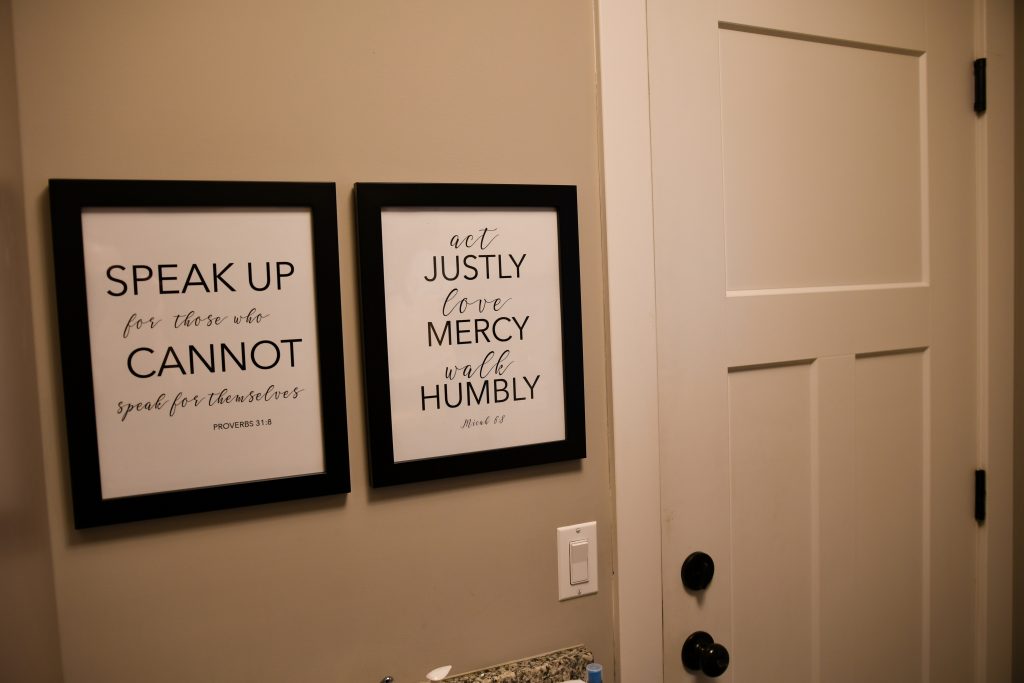
Welcoming New Neighbors
World Relief Chicagoland relies on the generosity of partners, like Greg and Olivia, to welcome and walk alongside immigrants and refugees as they rebuild their lives. For over 40 years because of the generosity of others, World Relief has welcomed thousands of new neighbors helping them reach stability and responding in love.
Will you give to build welcoming and just communities for immigrants and refugees to thrive?
Lent Prayer Guide: A Call to Give
What is Lent?
Lent is a time to reflect on the death and resurrection of Jesus. In this time of reflection, Lent is also a call to give up something for 40 days. We do this in order to not only become more aware of God’s presence in us, but to give in to who God is shaping us to be.
Lent feels more poignant this year. We are witnessing widespread suffering across the world and navigating many emotions in our own personal lives. Together we help hundreds of refugees and immigrants who fled their home and are now seeking safety, rebuilding their lives, and finding belonging in a new home. All this takes work and takes people – like you and me – coming together to acknowledge these realities and step forward into what God has for us.
There is a question that begs our attention. How is God calling you to give up, give in, and give out during this season of Lent?
A Season of Giving
The Lenten season is unique for Christians because it reminds us of what Jesus endured on our behalf. He suffered by being beaten and nailed to a cross, died in front of his family and loved ones, was buried in a tomb, and then was resurrected defeating sin once and for all.
The actions Christ displayed for us compels us to respond during this Lenten season. Here are four tangible ways you can enter into Lent with World Relief Chicagoland:
- Pray daily for refugees and immigrants in our community. Pray for those who are currently displaced all around the world.
- Learn from your friends, neighbors, and right here on World Relief Chicagoland’s blog about how you can welcome and walk alongside refugees and immigrants in your community.
- Give your time and resources to help refugees and immigrants rebuild their lives and flourish in their new home.
- Advocate for refugees and immigrants by contacting your elected officials.
As you can see, at World Relief Chicagoland this Lenten season is a call to reflect on giving. What is holding you back from seeing what you need to give up? How can you make space to intentionally reflect and give in to how God is moving? In what way will you give out in response to what God is doing through you?
Download the Lent Prayer Guide: A Call to Give
For these reasons we created this Lent prayer guide for you. Through this guide you will join others throughout the World Relief community in daily prayer for refugee and immigrant neighbors. May this season of Lent be filled with giving up what is holding us back, giving in to what God has for us, and giving out what God pours into us.
More Resources to Pray with World Relief Chicagoland:











